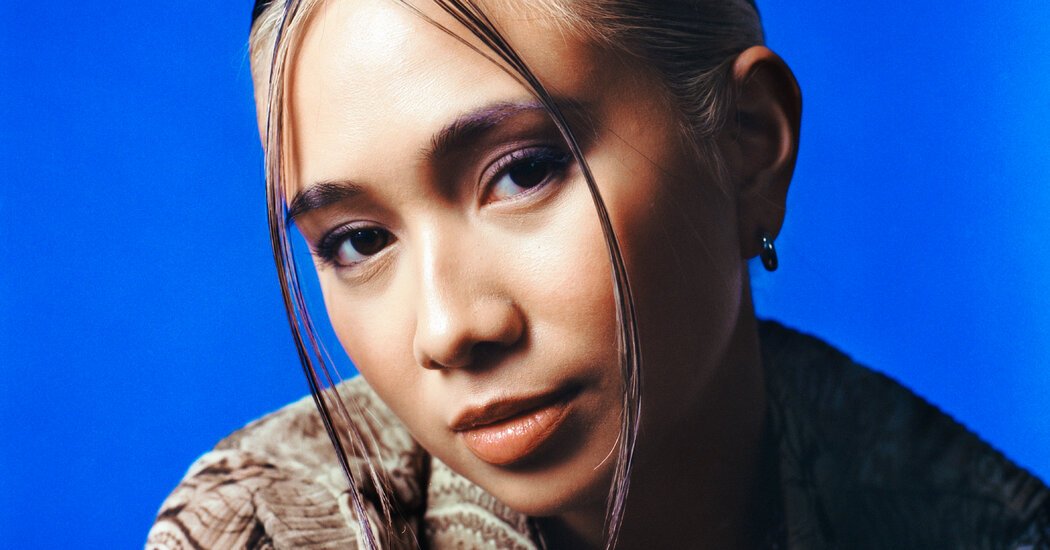Zefanya was 15 when she won an online contest to open a Swift concert in Jakarta. In her dressing area before the show, Niki said, “I just see this slender arm poke through the curtain and just peel it back, and she goes, ‘Hi, I’m Taylor, nice to meet you.’ And I just froze, like, oh my gosh, I’m seeing Taylor Swift in the flesh. I remember not being able to say anything to her.” (They took a picture.)
Soon afterward, Zefanya — like countless musical teenagers in the 2010s — started her own YouTube channel, nzee24, singing covers and unveiling her own songs. English was her favorite subject at school, and she delighted in polysyllabic rhymes. Unlike many YouTube bedroom pop creators, she didn’t just strum and sing — she assembled multitrack productions.
Niki continues to produce or co-produce all of her songs. “She’s a great producer,” Ethan Gruska, who co-produced many of the songs on “Buzz,” said in a video interview from his Los Angeles studio. “My job usually, with her, is to take things that are well thought out and sounding really great and scale up. It’s almost like color correcting.”
Zefanya accepted a scholarship to Lipscomb University, a Christian school in Nashville, knowing the city is a music-business hub. During her freshman year, a song that she wrote and uploaded to YouTube at 16, “Little Souls,” caught the ear of the Indonesian rapper Rich Brian.
“I cringe whenever I hear that song,” Niki said. “It was too long. It had no coherent structure. And for some reason people really enjoyed it. I think it was the genuine honesty.”
Brian brought her music to 88rising, an American label and management company that cultivates Asian and Asian American songwriters performing English-language pop. When she signed with the company, she dropped out of college and moved to Los Angeles to record as Niki. She took down her YouTube channel, and her early singles for 88rising positioned her as a pop-R&B songwriter, backed by electronics and eager for romance. One single, “Lowkey,” has racked up more than 468 million plays on Spotify. Her 2020 debut album, “Moonchild,” had more somber ambitions, with moody synthesized tracks and high-flown metaphors.
Read More: Niki’s Early Music Makes Her Cringe. Her Emotional Pop Is Growing Up.


